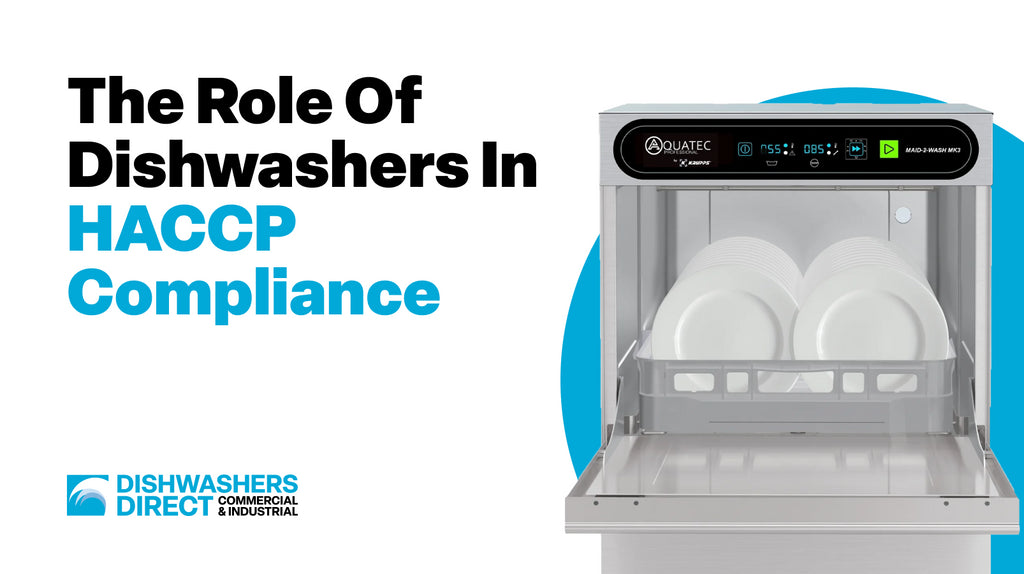The Role Of Dishwashers In HACCP Compliance
Posted by SAMUEL DEAKIN

If you run a business that serves or deals with food, you must adhere to the Hazard Analysis and Critical Control Point (HACCP) principles. The HACCP principles keep your food safe from biological, chemical, and physical food safety hazards.
The HACCP covers the entire food system from production to clean up and is strictly enforced. Farmers need to make sure their fresh produce is protected from disease, that they use safe pesticides, and that their food is packaged in such a way that the risk of rot and disease is all but eliminated. Restaurants need to cook to the required standards to kill off any bacteria that could cause food poisoning, or another global pandemic.
Once the plate has been used, it needs to be cleaned and unfortunately not all dishwashers are up to standard.
In order for a dishwasher to be HACCP approved, it needs to meet the following criteria:
- Microbiological Requirements – In addition to ensuring that dishware is visibly clean and dry upon the completion of the cleaning cycle, commercial dishwashers must also achieve a level of disinfection performance.
- Contact Time – A minimum contact time of 90 seconds for a single-tank dishwashers and two minutes for multi-tank dishwashers in order to obtain a hygienically safe result.
- Dishwasher Cleaning – Dishwashers need to be cleaned out after every operation period, with the cutlery basket cleaned out at least once a day.
- Operating Records – An operator is required to maintain a daily operation logbook that records the start and end times of operating periods, operating temperatures, any malfunctions that occurred, as well as any repairs or maintenance that was performed.
- Inspection & Testing – The standards specifies both daily and periodic inspection and testing to ensure that a dishwasher is operating hygienically. Daily inspection includes visual inspection and checks for temperature, water quality, and overall cleanliness. Periodic inspections also include testing to determine surface total area aerobic count on dishware and total aerobic count in the detergent solution. Where applicable, testing with bioindicators is also prescribed.
How Hot Should A Commercial Dishwasher Operate?
Commercial dishwasher should operate at between 49°C and 60°C during the washing cycle, and between 82°C and 88°C during rinsing. Note that this is higher than the average for domestic dishwashers. At these temperatures, few pathogens can survive – particularly when combined with an effective detergent. Higher temperatures are also far more effective at removing persistent stains from cutlery and dinnerware.
Monitoring and Testing Commercial Dishwasher Temperatures
The most effective method for monitoring temperature of your commercial dishwasher is by utilising a specialised dishwasher temperature probe like the DishTemp. This probe mimics actual plate surface temperatures, offering more precise readings.
Simply place it in your dishwasher rack and it will monitor the water temperature throughout the entire cycle. It records the highest temperature achieved with a resolution of 0.1°C.
Test strips are a traditional method of monitoring the temperature of a dishwasher. These single-use strips loop around your dishwasher rack, turning green once the rinse temperature reaches 82°C. Not only are they inaccurate and unreliable, they’re costly too.
It’s important to regularly check your commercial dishwasher to ensure it reaches a minimum of 82°C. The DishTemp thermometer is the most accurate and reliable tool for this and its reusability means its more cost effective than single-use test strips.